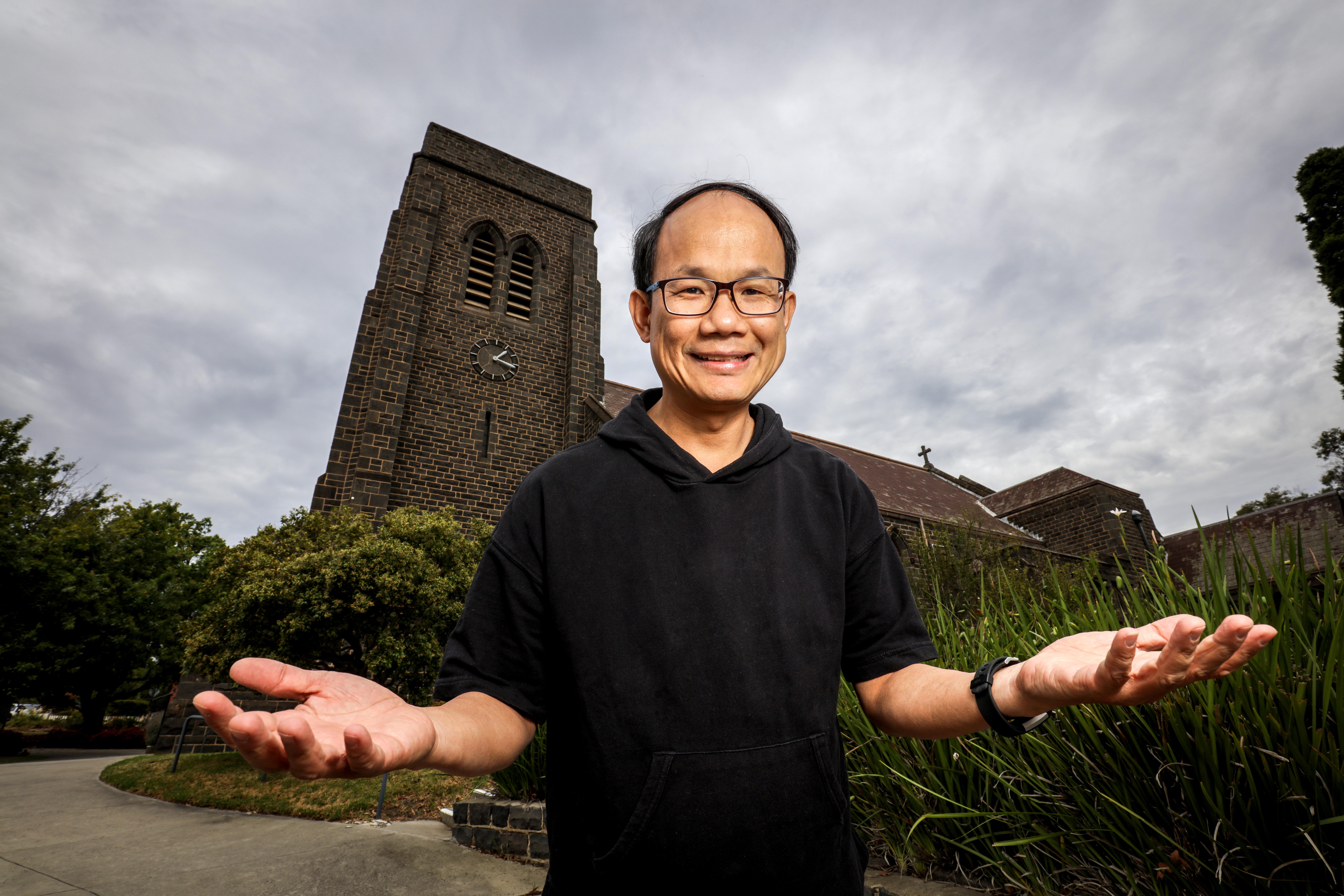Is Easter’s message still being heard or does the church need to pull a rabbit out of its hat?
By Stephen Acott and Mikaela Turner
Rabbits have a knack for making themselves unwelcome. To look at them, they seem harmless enough – cute, cuddly, what’s not to love? – but once you let them in, they’re near impossible to let back out.
Because rabbits don’t share spaces, they saturate them. Obliterate them. Destroying anything and everything that once stood resolutely alone.
So it’s probably wholly (holy?) appropriate that at a time that was once revered and reserved for Christians to pause, reflect and give thanks to God is now overrun by rabbits.
No one knows for certain when rabbits were introduced at Easter – some say the 1700s, others as early as the 1500s – but whoever was responsible seemed to have good intentions. Rabbits represent fertility, which in turn represents new life, which is what Easter is all about.
Eggs do the same, of course, but rabbits and eggs still make for a mismatch – and, yet, here we are at Easter time again and houses filled with children – and even those without – are counting down the days until the Easter Bunny arrives with all those chocolate eggs.
And all this commotion and commerciality has all but overtaken the real reason for Easter – Christ’s resurrection.
“I am not entirely convinced that people know what Easter really is any more,” says Sandy Brodine, minister for the Banyule region.
“If you listen on Easter Sunday to the commercial news, they’re not talking about what we are talking about in church. It would be really easy to live in Australia and have no idea why we have this four-day holiday that moves around at this time of the year.”
How can that be? How can a man rise from the dead – a feat that has never been achieved before or since (Jon Snow in Game of Thrones doesn’t count) – and not be newsworthy, even 21 centuries on? How does that event get overrun by rabbits?
Ajub Jahja, minister at St Andrew’s Gardiner Uniting Church, lays some of the blame at the feet of the church.
“We have to recognise this failure,” he says.
“Even in church people treat Easter as a bunch of activities – finding eggs, eating chocolate bunnies – they do not live up to the meaning of Easter.”
Dr Geoff Thompson, Associate Professor Systematic Theology at Pilgrim Theological College, agrees, saying the church only has itself to blame for society turning a deaf ear to its message.
“The church’s voice is so drowned out at the moment,” he says.
“We can say all sorts of things about Easter, but I am not sure our society is in a position to hear it, for all the obvious reasons, such as the scandals.
“The critical thing is our failure to live according to the resurrection. The challenge at Easter is for Christians to say ‘this is what we believe therefore we will live this way’. Until we are able to embody that, we won’t actually get a hearing.
“The church can’t control how society is going to act and if Easter has become more commercialised, we should stop throwing our hands up in horror – it’s happened and that horse has bolted.
“I don’t think we should be lamenting that, what we should be doing – and are doing – is focusing on the good we do.
“There is no shortage of churches that are doing great things – welcoming refugees, serving their local communities in often costly ways, caring about the environment, visiting the sick, building up people in faith and hope, looking after the poor. I don’t know that the church can do more than that. That is what the church’s calling is.
“The church’s calling isn’t to make our culture Christian, the church’s calling is to be Christian itself.”

Ajub Jahja: “We have to show non-Christians that this is the spirit of Easter – forgiveness and sacrifice.”
Ironically, another reason why the resurrection fails to cut through news bulletins and into people’s thoughts is the act itself. As Geoff says: “It’s a big claim and we shouldn’t lose sight of that.”
“We have to understand that in the world people live in today many just can’t comprehend something like Easter. We have to understand that, to them, the resurrection is a pretty outrageous claim – they can’t imagine the idea of a body being raised.
“We’ve got to work hard at how we articulate and communicate that. How do we recapture the imagination of a culture that has lost interest?”
Ajub says the way ahead is for churches to live and embody the Easter message.
“It is useless to talk to others about the message if we do not live in the message ourselves,” he says. “We have to show non-Christians that this is the spirit of Easter – forgiveness and sacrifice.
“It is easier to ask to talk with other people about Easter if we ourselves live in its message.
“At Easter, the church should not focus only on the congregation, but also on spreading the love to others.”
Sandy agrees, saying if churches are embodying Easter’s message then the rest just might take care of itself.
“All we can do is invite people to explore (the Easter message) and find meaning in it where they can,” she says.
“I don’t know any Christians for whom Easter isn’t something that changes their life and impacts how they see the way the government operates and the way asylum seekers are treated.
“You can’t be a Christian without the story of Jesus somehow making you want to make the world a better place for all sorts of people.
“Those big stories of hope and love and redemption and inclusion are so embedded that you can’t help but have them come out.
“We have been really fortunate to engage with LGBTI people, so we would be really open about God’s gift of love is for everybody, no matter who you are, where you are, how you are – God’s love is for all of us.”
Another factor which should help the church regain some lost ground is the fact that the message of Easter – hope – remains very relevant to this modern world.
Alistair Macrae, former Synod moderator and currently minister at Wesley Uniting Church, says Easter “provides community in a world where there are lot of forces against sustaining community”.
“It’s so easy to be crushed by the whole spectre of environmental catastrophe and the lack of international will to address it properly,” he says.
“There is also the prevalence of war and violence, and the growing gap between the rich and the poor – it’s pretty bleak at that level and that’s even before you get to the personal struggles and sufferings that people have in life.
“So, hope is desperately needed and, to me, the resurrection generates hope and says that in spite of the way things are we can continue to work for change and for better, even if we don’t immediately see the results.”
Geoff also thinks that hope is a good message to offer contemporary society, but it’s not the only message.
He says Easter isn’t just a “happy-ever-after story” and, each year, it makes a “moral statement”.
“What is the relationship between the crucifixion and resurrection?,” he asks.
“For instance, in the book of Acts, Peter uses this notion that you did this (crucifixion) to Jesus but God did this (resurrection) – this kind of reversal. It’s not just God does this great miracle, there is actually a moral statement being made in the understanding of the resurrection.
“Human beings said ‘no’ to Jesus, God has said ‘yes’ and therefore said ‘yes’ to all of things that people put Jesus to death for.
“All of the things Jesus stood for – his solidarity and hospitality with the outcasts, his teachings about loving and praying for enemies, all of that – that is what was so objectionable and what got him killed.
“But we can interpret the resurrection as God endorsing all of that. There is a deeper theological understanding that the resurrection is also pointing to something final, some sort of final resolution.
“It’s God setting right all that has gone wrong. Looking to the future, it is God saying eventually it will all be restored in the same way Jesus was restored.
“The challenge to the Christian faith is if Jesus had actually made a difference and if in fact he was the Jewish Messiah who’s coming was supposed to bring peace, it didn’t happen.
“When Jesus died, the poor were still poor, the blind were still blind and there were still injustices – and all of that it still going. That is the challenge for Christians of every generation. We find faith in the midst of its apparent meaningless.
“I would say that’s one of the mysteries of faith. Christians are still somehow able to find hope when the reasons for hope seem absent, which of course is to put a lot of weight on the resurrection.
“Even though the world looks the same, we have hope that is won’t always look the same because of Jesus. We anticipate God will do something, that the restoration he brought to Jesus will actually be brought to the whole of creation.”
Hope springs eternal, especially at Easter, but even that isn’t what makes Easter so important. The reason Easter is essential to any person of Christian faith is because, without it, there is no Christian faith.
Think about it. Yes, Jesus performed seven miracles – everything from feeding thousands with just a few loaves and fish, changing water into wine, walking on water– and died brutally on a cross for his troubles, but none of that would have sourced and sustained the following which Christianity embodies without the resurrection.
As Ajub says: “If Jesus remained dead, they are useless. Jesus being born on Christmas and dying on Good Friday wouldn’t mean anything without the resurrection.”
Geoff believes without the resurrection Christ’s life would possibly still resonate, but Christianity, if it existed, would be different.
“Without Easter there is no Christianity,” he says.
“Christianity emerged because of the resurrection. It is not possible to imagine the origin of Christianity without the resurrection.
“Say Jesus hadn’t been raised, might there have been ways of following Jesus? Yes, there probably could have been, but they would probably have been focused on his teachings and the example of his martyrdom.
“But that would have produced a very different movement to the one we have that was produced by belief in the resurrection.”
And that’s why, at Easter especially, the hare is out of place.



